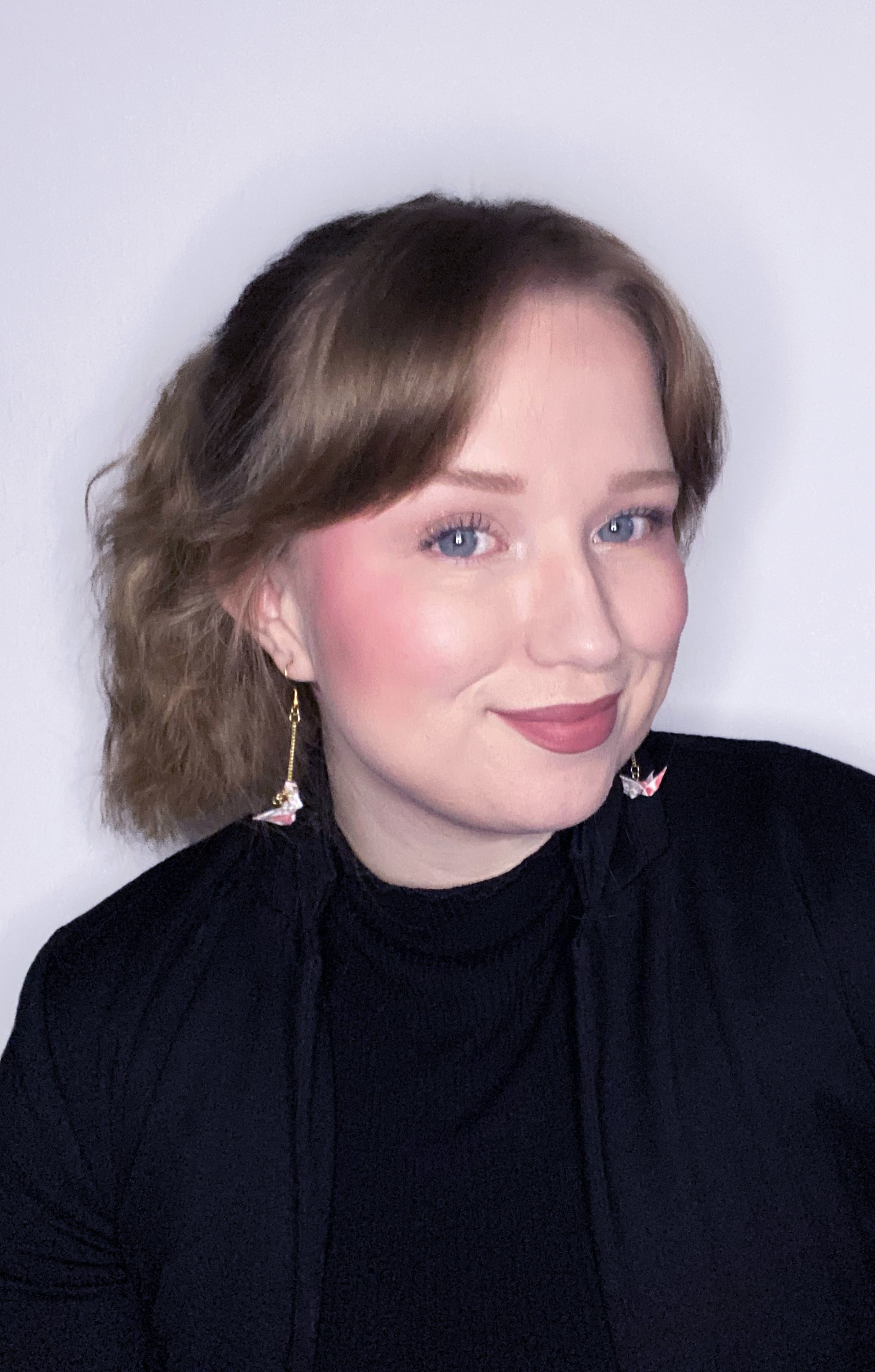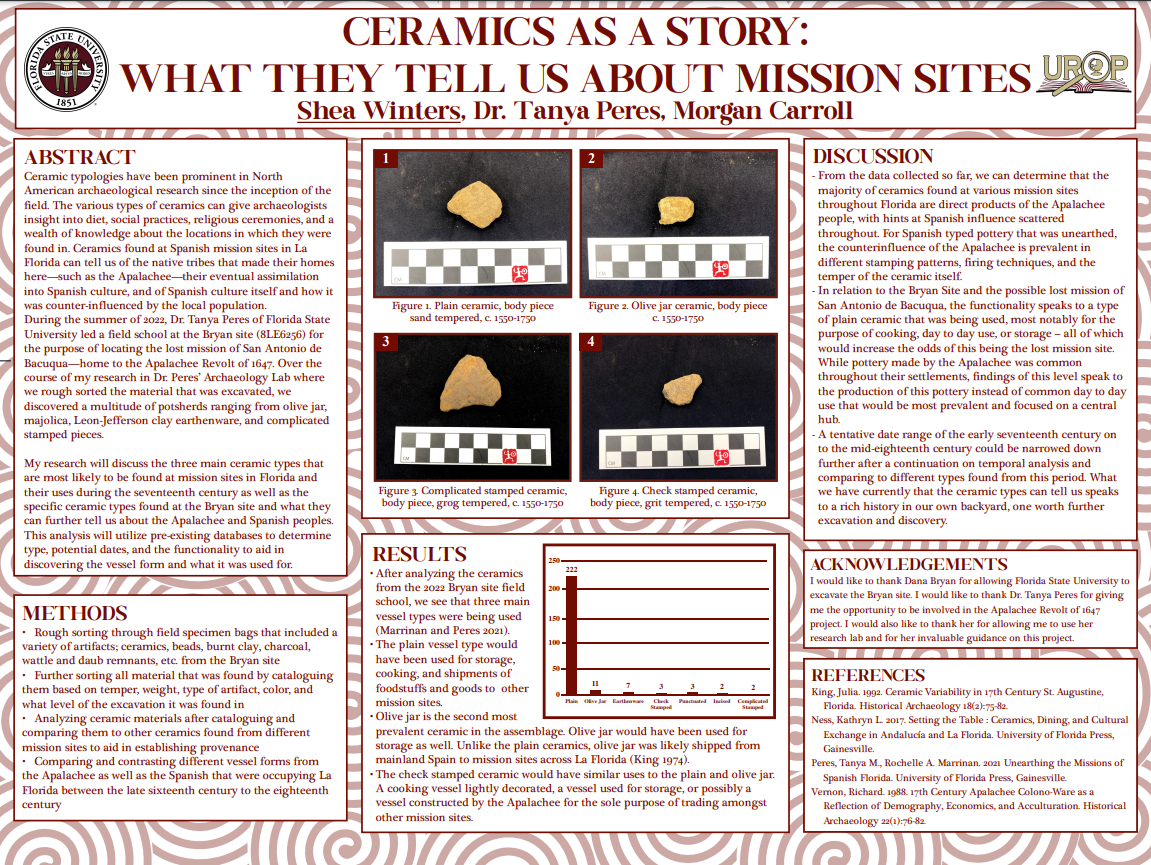Research Symposium
23rd annual Undergraduate Research Symposium, April 6, 2023
Shea Winters Poster Session 4: 4:00 pm - 5:00 pm/ Poster #382

BIO
I'm a Tallahassee native who has always had a passion for anthropology, history, and the pursuit of knowledge. When I'm not in school at FSU I own my very own cleaning company, All American Maid, and being a business owner while continuing my education has been equal parts challenging and unbelievably rewarding. My long term goals range anywhere from traveling the world and potentially working in the field of paleoanthropology and prehistory, or immersing myself in art history and becoming involved with something similar to Khan Academy - an online learning tool that has aided me since I first started pursuing a higher education back in 2017. I'm a bit of an enigma in that I can go out and thrive in any environment, but also love staying home and reading any book I can get my hands on. UROP has been a wonderful experience for me so far in both encouraging my love for learning, and allowing me to participate at FSU in ways I never thought I'd be able to - especially as a woman with PCOS that required disability help. I look forward to this being the first of many more research projects to come!
Ceramics As a Story: What They Tell Us About Mission Sites
Authors: Shea Winters, Tanya PeresStudent Major: Anthropology
Mentor: Tanya Peres
Mentor's Department: Anthropology Mentor's College: Florida State University Co-Presenters:
Abstract
Ceramic typologies have been prominent in North American archaeological research since the inception of the field. The various types of ceramics can give archaeologists insight into diet, social practices, religious ceremonies, and a wealth of knowledge about the locations in which they were found in. Ceramics found at Spanish mission sites in La Florida can tell us of the native tribes that made their homes here—such as the Apalachee—their eventual assimilation into Spanish culture, and of Spanish culture itself and how it was counter-influenced by the local population. During the summer of 2022, Dr. Tanya Peres of Florida State University led a field school at the Bryan site (8LE6256) for the purpose of locating the lost mission of San Antonio de Bacuqua—home to the Apalachee Revolt of 1647. Over the course of my research in Dr. Peres’ Archaeology Lab where we rough sorted the material that was excavated, we discovered a multitude of potsherds ranging from olive jar, majolica, Leon-Jefferson clay earthenware, and complicated stamped pieces.
My research will discuss the three main ceramic types that are most likely to be found at mission sites in Florida and their uses during the seventeenth century as well as the specific ceramic types found at the Bryan site and what they can further tell us about the Apalachee and Spanish peoples. This analysis will utilize pre-existing databases to determine type, potential dates, and the functionality to aid in discovering the vessel form and what it was used for.
Keywords: anthropology, ceramics, archaeology, native americans, analysis

